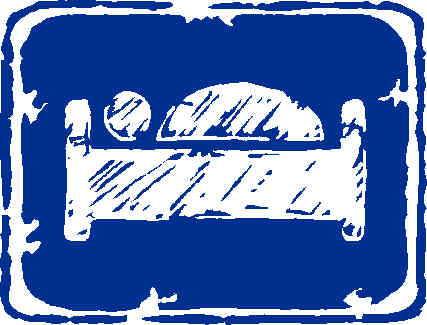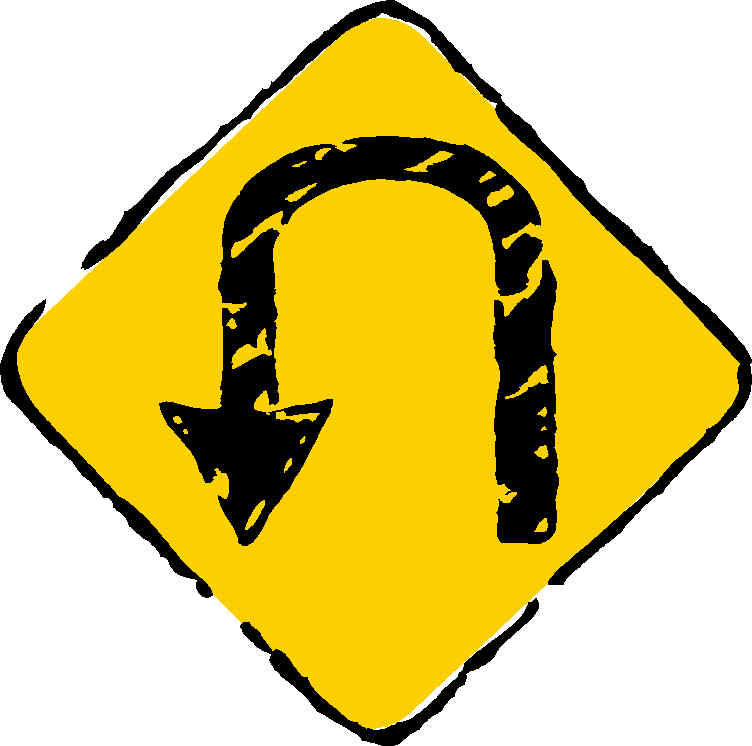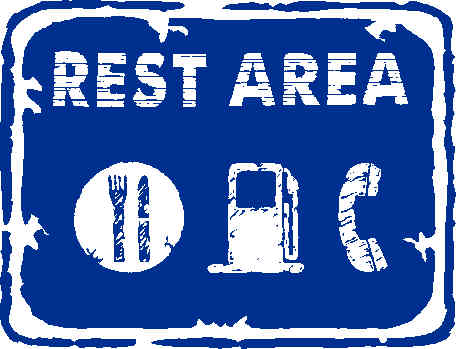DR. TOM'S STUDY TIPS
Teaching you what you probably didn't
learn in Kindergarten.
By Dr.
Thomas Paradis,
Department of Geography and Public
Planning
Northern Arizona University

Are you interested in improving your study skills and your ability to learn?
If so, great! Although I am not a so-called "expert" in education,
I have learned much about the learning process -- and I'm talking about
long-term
learning, rather than simply cramming for the next exam. Believe
it or not, you can avoid cramming entirely and maintain a
very high GPA! For most class formats and instructor teaching styles,
the general tips I discuss below are, I believe, quite universal.
I will share some of the basic principles of learning (some just require
common sense) that have helped me over the years and have helped other
students that I have spoken with. Just be aware that everybody differs
with regard to how they learn, and ultimately you will have to determine
what studying methods and approaches work best for you. If
it works, stick with it. As Mom used to say, "If it ain't broke,
don't fix it". If you aren't at that stage just yet, hopefully some
of the tips below will get you going in the right direction. NOTE:
At the end of this page I ask you to volunteer your own comments.
Also, the views and opinions expressed below do not necessarily represent
the official position (not that there is one) of the Department of Geography
and Public Planning or Northern Arizona University.

A
lot of the stress that students experience in college is related to studying
for exams (we'll leave out social and personal factors here and concentrate
on the academic realm). Much of this exam-related stress is NOT NECESSARY!
Cramming for exams causes much stress, makes you lose sleep, disrupts your
body's time clock, and does NOT allow you to place material in your long-term
memory storage banks. Save for getting a few extra points on an exam
(and some of you have surely mastered the act of cramming and do quite
well on exams!), there are no long term personal gains to this practice.
STOP THE STRESS by following the tips below.
TIPS FOR EFFECTIVE STUDYING
AND LEARNING
I
am always amazed at how many students come to class, watch me teach, take
very few notes, and expect to remember the class material a month later
during the exam. It doesn't work. Very few of us humans can
actually remember the fine details, and even the major themes, of a lecture
or discussion several days later, let alone a month. That is because
your mind is cluttered with so much information and so many experiences
after a particular class that you lose much of what you learned very quickly.
It's natural, and it's to be expected. As Billy Joel sings, "You're
only human".

1) Sleep, sleep, sleep!
First,
and perhaps most importantly, be sure to get enough sleep on a regular
basis! If you manage your time well enough, there is no reason why
you cannot get 7 to 8 hours of sleep on most nights. Research has
shown that you can accomplish much more during the day if you are not tired
due to lack of sleep. If you go to class and fall asleep, or just
"zone out" temporarily, then you might as well not be there. Lack
of sleep not only leads to inefficiency and slow brain activity during
the day, but can lead very quickly (within a matter of days) to a weakened
immune system. It is much easier to get sick if you have not been
getting the sleep you need! If you need a nap during the day, take
one! A half hour "power nap" can do wonders for several hours afterward.

2) Take thorough notes.
When
you go to class, it is a time to work hard and concentrate. Whether
it is a lecture, discussion, video, or other situation, you need to take
notes, and good notes. This is a MUST if any of the
other study tips are to be followed. Very few of us, myself included,
can remember numerous ideas, concepts, or statistics even ten minutes after
learning them. You must write these things down, whether or not the
professor puts it on an overhead transparency or provides a class outline.
That means that you need to be efficient, so that you don't spend so much
time writing down every last word that is said or written in class.
In some way that you are comfortable with, you need to document what has
transpired in class. Some students use mini-cassette recorders, so
that after class they can take good notes on their own time. Others
will rewrite and organize their notes after each class so that they are
more understandable. If you are a decent notetaker already, then
your own notes from class should suffice.

3) Review material immediately after class.
The
learning process has only just begun in the classroom itself. Even
if you take great notes, they will not benefit you much in the long-term
if you don't look at them again until the day before the exam. Sure,
they're there so that you can cram the night before, but you won't LEARN
the material very well. Thus, you must review your notes within a
few hours after the class -- either immediately after class if time permits,
or sometime later that day. This does not require a lot of time!
Maybe 10 to 15 minutes, unless the material is complicated and requires
more time. Importantly, reviewing class material soon after the class
will help you to retain the information that you learned, and to
understand
it more thoroughly.

4) Recite and Repeat
Reviewing
material after class is a big first step. If you really want to learn
the material and reduce the stress from cramming, however, you need to
return
to the material several times within a couple weeks after class.
Further, you should recite the main ideas and concepts back
to yourself without looking much at the notes! As you repeat this
process several times, you will find that you can look at key words or
phrases and discuss them without needing your notes! This step of
reciting and repeating the material to yourself takes the most work, but
it is the most important. Notetaking can be easy, and reviewing notes
can be easy. Forcing yourself to repeat it back to yourself several
times, however, takes some effort. Still, it is a MUST! This is the
key to storing the material in your long-term memory and avoiding cramming
sessions all together.
There are several methods to accomplish this. For one, you can simply
refer back to your original notes on a regular basis -- maybe use Sunday
evening to return to the previous week's material from all your classes.
Secondly (and this is my personal favorite), use notecards.
On each notecard, you can write down major themes, lists, definitions,
story highlights, etc., depending on the class and material covered.
Carry the notecards around with you during the day, so that you can use
them as flash cards while waiting for a bus, "killing" time between classes,
or exercising in the Rec Center. The notecards will allow you to
"pull up" key themes and terms, forcing you to remember the details associated
with those themes. Then, try to recite them to yourself. Still
having trouble with certain material? Return back to the notes themselves
and refresh your memory. Finally, try getting together with some
classmates to study with each other, well
before the actual
exam! Study groups will allow you to quiz each other
on various material, and it will force you to explain it to someone else.
When you have mastered the ability to recite the material -- and understand
it at the same time -- you will no longer need to cram for exams!
Most of the material will already be stored in your long-term memory.
All you should have to do is take a couple of hours the day before to review
some of the more complex material, and run through the bulk of ideas and
concepts to see if you need to spend more time on something.
The night before the exam, you can SLEEP! Don't worry -- you will
not forget everything if you get a good night's sleep! On the contrary,
you will be able to think faster and more sharply during the exam.
Try it! I bet that you'll like the results, and at least some
of the stress that you have as a college student will disappear -- over
night!

5) Ask for Assistance!
If you do not understand some of the class material, call or talk to your
professor/instructor well before the exam. If you are reviewing material
regularly, you should be familiar with the areas that you need help with.
In advance of your meeting, write down a short list of things that you
wish to discuss, so that your discussion can go more smoothly. I
always encourage students to see me during office hours or by appointment
to discuss class material. Many of my own students have benefitted
directly on exams because they took a little time to ask me a few questions
about material that was unclear. Most importantly, it will help you
to learn what your instructor set out to teach you.

6) Take a Break!
It
is difficult to study intensely for a long period of time without taking
frequent breaks. The breaks are part of the learning process, believe
it or not. Although you will discover what works best for you, I
suggest that for every 20 minutes of studying/reviewing, take a five minute
break to walk around a bit, let your mind drift, or get a snack.
For every half hour, take a ten minute break. Again, this will vary
highly from one individual to the next, but I view it as a necessity!
Your brain needs time to rest and to absorb the information that you are
piling into it. This of course does not mean that you should study
for ten minutes, take an hour off, then come back for another intense ten-minute
work session. Use your own judgement. The important point is
that you can overdo it and decrease the efficiency of learning if you try
to do too much at one time.
7) The Night Before the Exam
At this point, it is important to review the material for the exam.
The main difference is that you do not have to cram, because you have already
learned most of the material! Instead of cramming, all you should
need to do is take a couple of hours, if that, to review your notes, review
sheets, etc. If there are any chunks of material that you still need
to focus on, you can do that without worrying about the rest of it.
Instead of an intense, sleepless cramming session that does not teach you
anything, you will be enjoying a relatively stress-free review session
before getting plenty of sleep that night.
HEY!
Do you have any study tips or hints that you would like to share?
I would like to build this web site with your help! Email me your
comments, and I may eventually add them to this site, anonymously, of course.
Thanks in advance for your input!
My
email address: thomas.paradis@nau.edu

RETURN TO:
GGR
240 Home Page
GGR
241 Home Page








